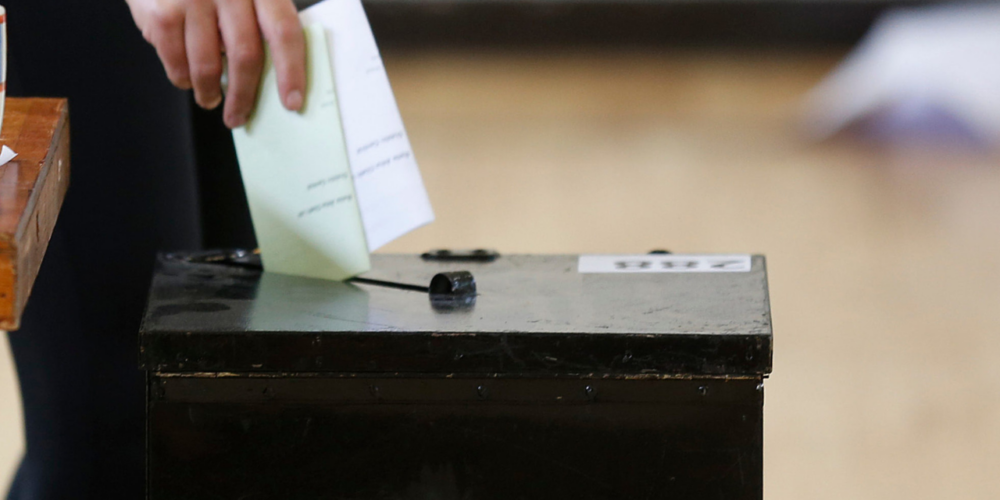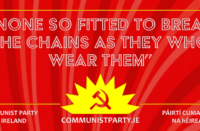The following article is presented to offer up for debate a potential transformative electoral strategy in the wake of the recent local and EU elections. There is a wider and more important debate and strategy to be formulated over the coming months and years on how to deepen and broaden working class consciousness, directing working class forces into working class organisations. These organisation – be they in the political or economic spheres, or in civil society – need to have discipline and an understanding of their historical role in attempting to challenge the hegemony of the current ruling class’ power and ideology, an ideology that is dragging humanity into a barbarity that will surpass that of past centuries, ravaged by colonialism, slavery and world wars.
There is no need to repeat the results of the election: the CPI issued a very important statement on the matter. In other corners of the political landscape, there have been calls for a grand political alliance of the left, to elect, what one author described as potentially the very first left-wing government in the history of the state. This could be possible if a pact among the left parties and independents can be agreed upon, a task that may not prove so easy, if the fragmentation and opportunism of the past has any bearing on future alliances or broad fronts.
The argument being proposed here is that an electoral alliance is not the type of alliance the CPI or those that work closely with the party should be seeking out. Now is not the time for a grand electoral alliance, in the hope some type of left-wing government can be cobbled together. Rather now is the time for deep reflection and strategic think-ins by a broad section of working class forces, not falling into the trap of reacting to election results and calling for electoral alliances.
Given that the title of the article is an electoral transformative strategy, the reader may wonder if not a left alliance, what other strategy is there? First off, before detailing the strategy, a reminder of what we mean by “transformative” is in order. This has been described in a number of articles in Socialist Voice, but the quote below describes its essence.
“Within democratic demands lies a transformative element that can turn a simple reform into an opportunity to deepen and develop class-consciousness and democratic principles and practices. It is up to the most conscious members of the class to lay out the transformative demands. These stretch the envelope of working-class demands, because they are shaped by the most class-conscious section of the working class, bringing into clearer focus the conflict that exists within class relations. They are born and are developed from the reformist demands of the people but are then shaped by applying Marxist-Leninist theory to form transformative and revolutionary demands.
Given the context of the demand, campaigns built on these can become part of the overall anti-capitalist and anti-imperialist struggle of the people.The key is in how we construct our demands, which are in keeping with and are complementary to the demands of the wider working class and its forces but also instinctively create a separation from the insular reformist demand, to develop into a broader transformative demand and campaign.”
Given the above: what do we want, what is realistic and what is desirable in the short term, i.e. the upcoming general election? What would satisfy all three is for a rupture with the old political dynasty and I would argue that the best chance to upset the political dynasty of this state is for the “broad” left to throw its weight behind supporting Sinn Féin in an upcoming General Election.
I understand some sections of the left, socialists, republicans and others, will be wincing, cursing and rolling their eyes up to heaven at the thought of this. However, what needs to be clear is that this is a strategy to upset the status quo, not a promise of delivering all or any left wing demands, which to all intents and purposes are not clear among the people. This is a strategy to try and transform the electoral arena, which has been dominated by either Fianna Fáil or Fine Gael, which will accentuate the contradictions and limitations of narrow electoral politics.
This type of strategy is not to be confused with a belief that Sinn Féin will champion a strong left-wing program, nor should we tie them to one where conditions have to be met. Of course adopting a minimum program for maximum support, such as an all-Ireland Universal Public Services election campaign could be useful in uniting a left-wing platform, but more importantly at this juncture, we must remember that Sinn Féin is yet to be tied by a thousand threads to the bourgeoisie, the Irish ruling class and foreign capital. It still has roots and connections to the working class, to both the republican and socialist movements. This should not be ignored.
It would be absurd and idealist to think that any socialist government or agenda could be attained in the short term, even with Sinn Féin obtaining a large vote; it would be also be even more absurd to think this could be achieved without Sinn Féin. Our only hope for a progressive government lies with Sinn Féin, but also in our ability to influence those within it, and so we must give our support, at this juncture, unconditionally, to them. That means that if they utter a coalition with FF, let that not dissuade us from voting them. If they fail to denounce the EU, NATO and offer no economic alternative to the open Irish economy strategy, then let it be.
Our goal is not to believe or be sucked into election promises, but to disrupt as much as possible the cosy structures and relationships of the existing state and political establishment. It must be stressed that there is no illusion about how difficult it will be for people to embrace this strategy. Sinn Féin are at a crossroads and find themselves in a juxtaposition: the closer they get to government, the more those threads will be formed with the irish elite. The more they will enact the policies on behalf of the state, i.e. protecting the interests of the capitalist class, the more they will be seen as being a new part of the establishment and less of an opposition party, promoting an alternative vision for Ireland beyond the diktats of the triple-lock of imperialism (the US, the EU and Britain), which would mean a drop in support. The recent elections one could argue is evidence of this very thing.
We Irish communists, however, are less interested in the Red C polls and the popularity of Sinn Féin, but more interested in exposing and exploiting all divisions that are available to us. By strongly endorsing Sinn Féin in the General Election, we will maximise the potential for divisions within the Irish ruling class as they would no doubt fumble and stumble all around if they were to gain a sizeable number of seats in Dáil Éireann. This would allow a broader left movement time and space to be focused on building and deepening organic links between those groupings and individuals who envision a more radical Ireland, while also pushing the membership of Sinn Féin as far to the left as they would be willing to go.
This strategy also doesn’t need to be an either/or scenario. Running a string of left-wing candidates with transfer pacts does not run against this transformative strategy, it merely gives Sinn Féin the best opportunity at disrupting the status quo, to create divisions amongst the Irish ruling powers and focus our energies on building a working class movement outside of the existing electoral boundaries that have kept revolutionary potential hamstrung for over a century. So simply put, endorsing and supporting Sinn Féin in the general election is the most transformative demand we have at our disposal at this time: let’s not waste another election cycle on petty splits and divisions, we need to get focused on the bigger picture.






